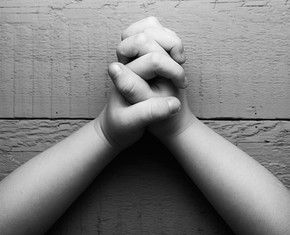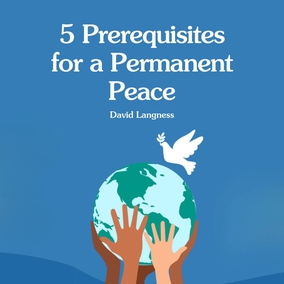The views expressed in our content reflect individual perspectives and do not represent the authoritative views of the Baha'i Faith.
I grew up in a church that made me deathly afraid of the wrath of God—but soon outgrew that fear. Lately, though, the fear of God has begun to seem like a good idea again.
As a child in that hellfire-and-brimstone Lutheran church, the minister scared me every Sunday with his tales of the wrath of a vengeful, stern deity. Frightened, I wondered what terrible thing a small boy like me could do to bring down such anger and retribution.
As a teenager, though, I rejected that religion, primarily because I simply didn’t believe in a God who would be so mean, so outraged and so indignant at the actions of His own creation. I mean, didn’t God have an idea, when he made the world and the people in it, that they wouldn’t always behave? Didn’t God—especially if He was all-knowing and all-wise—understand our souls, and forgive our trespasses?
Free of belief in such an angry God, I became an agnostic. But that didn’t satisfy my spiritual yearnings, so I went on a long search among various spiritual paths until I discovered the Baha’i Faith. In the Baha’i writings, I encountered a much more benevolent, loving and caring Creator:
God is love; God seeketh fellowship, purity, sanctity and long-suffering; these are the attributes of Divinity … Briefly, we must strive with heart and soul in order that this darkness of the contingent world may be dispelled, that the lights of the Kingdom shall shine upon all the horizons, the world of humanity become illumined, the image of God become apparent in human mirrors, the law of God be well established and that all regions of the world shall enjoy peace, comfort and composure beneath the equitable protection of God. – Abdu’l-Baha, The Promulgation of Universal Peace, pp. 290-291.
But the Baha’i teachings, I soon discovered, also contain some admonitions about fearing God:
Lay not aside the fear of God, O ye the learned of the world … Will not the dread of Divine displeasure, the fear of Him Who hath no peer or equal, arouse you? – Baha’u’llah, Gleanings from the Writings of Baha’u’llah, p. 98.
I felt conflicted. Did my new Faith echo the teachings I had rejected before? I decided to find out.
First, I did a little linguistic research on the word Baha’u’llah typically used when he advised us to fear God. I learned that the Arabic word for “fear” in that phrase—taqwa (sometimes spelled taqva)—means much more than regular fearfulness. Instead, it means an enhanced consciousness and cognizance of the truth and the rational reality of God. The word taqwa—literally, to protect—also has connotations of knowing your place in the cosmos. I realized that the word had many more implications and shades of meaning than the English word or my childish comprehension would allow—it means respect, righteousness, awe, wonder and a healthy regard for God’s power and justice.
In his six-volume poem The Mathnavi, Rumi expressed the idea of taqwa in this mystical way: “And if he feareth not God, God will make him to fear all things; whereas all things fear him who feareth God.” Baha’u’llah even quoted that trenchant line in The Four Valleys, his book about spiritual search. He also said:
Fear God, O people, and refrain from shedding the blood of any one. Contend not with your neighbor, and be ye of them that do good. Beware that ye commit no disorders on the earth after it hath been well ordered, and follow not the footsteps of them that are gone astray. – Baha’u’llah, Gleanings from the Writings of Baha’u’llah, p. 276.
So lately, as I’ve repeatedly read and meditated on these passages about the fear of God in the Baha’i teachings, I feel like I’ve come to a better and more nuanced understanding of what fearing God really means. For me, it now means following God’s laws and principles—the laws of unity, peace, harmony and kindness to others. It does not primarily mean being afraid in the normal sense of the word. Instead, it asks me to fear God as anything in creation would naturally respect, be conscious of and stand in awe of its Creator:
Admonish men to fear God. By God! This fear is the chief commander of the army of thy Lord. Its hosts are a praiseworthy character and goodly deeds. – Baha’u’llah, Tablets of Baha’u’llah, p. 121.
You May Also Like
Comments

















Fear of God is also fear of what ...would be by disobeying Him, just like disobeying our own laws and social mores have consequences.
Thank you David for this article and the explanation of the real meaning of 'fear'. I had no idea.